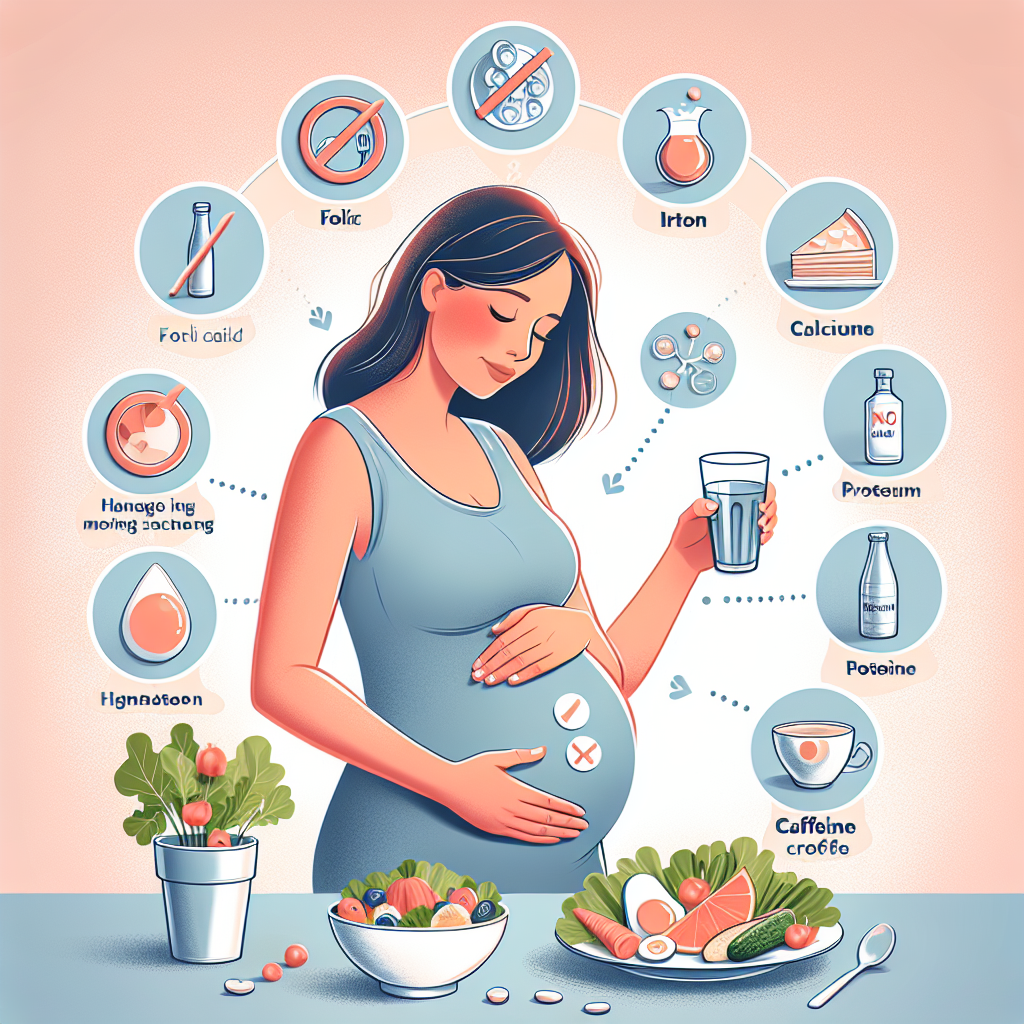Adequate Nutrition During Pregnancy: Tips and Recommendations
Introduction
Pregnancy is one of the most wonderful periods in a woman's life, marking the beginning of an adventure full of joys, but also challenges. One of the main concerns of future mothers is that of adequate nutrition, essential for the healthy development of the child. In this guide, we will explore the key elements of proper nutrition during pregnancy, addressing topics such as motor and language development of the child, under the impact of nutrients taken from the mother.
Essential Nutrients and Their Sources
To ensure optimal development of the fetus, a pregnant woman must pay attention to a number of essential nutrients. Iron, for example, is vital for the formation of hemoglobin, the protein that carries oxygen in the blood. Good sources of iron include red meat, green leafy vegetables and fortified cereals.
Omega-3 fatty acids, especially DHA, play a crucial role in fetal brain and vision development. These acids can be found in fatty fish, such as salmon, and in chia seeds.
Calcium is essential for the formation of the baby's bones and teeth, and excellent sources can be dairy products, tofu and almonds. Also, vitamins such as vitamin D and folic acid, which can prevent birth defects and support bone health, should not be neglected.
Motor Development
Adequate nutrition has a significant impact on the child's motor development. Calcium and vitamin D are vital for your baby's bone development, which will allow him to develop muscle strength and coordination of movements. Pregnant women need to ensure that their diet includes enough of these nutrients to support this essential stage of their baby's development.
Language development
Although it seems surprising, nutrition even influences language development inside the womb. Omega-3 fatty acids, especially DHA, are fundamental to a child's brain development, which in turn influences the ability to learn and develop language. A diet rich in these acids is essential in the last trimester of pregnancy, when the baby's brain is growing rapidly.
Common Problems and How to Manage Them
Morning sickness and heartburn are just some of the common inconveniences mothers experience during pregnancy. Eating frequent small meals rich in complex carbohydrates can help ease nausea, while spicy and fatty foods should be avoided to prevent heartburn.
The Importance of Hydration
Hydration is just as important as solid nutrition. Adequate fluid intake supports blood circulation and helps eliminate waste from the body, benefiting both mother and baby. Water, unsweetened natural juices and milk are the best options for effective hydration.
When to Ask for Help
If you're unsure about the best diet for you and your growing baby, don't hesitate to seek advice from a doctor or nutritionist. They can provide personalized guidance that aligns with each mother's specific health needs.
Conclusion
Adequate nutrition during pregnancy is the cornerstone of your baby's healthy development. By paying attention to your intake of essential nutrients, managing dietary challenges appropriately, and staying well hydrated, you'll set the stage for a happy and healthy pregnancy. Remember that every pregnancy is unique, and what works for one person may not be right for another. Therefore, remember to consult with health professionals when it comes to your nutrition plan during pregnancy.



















































































































































